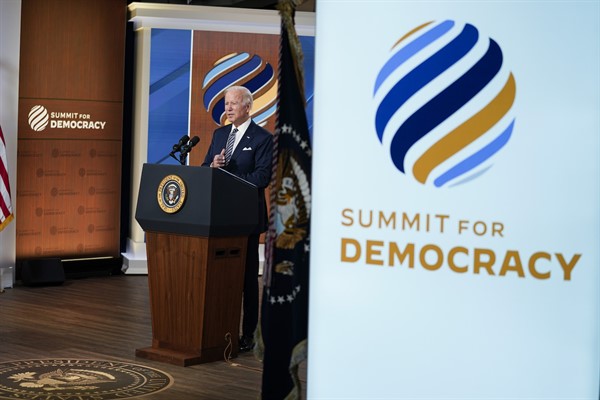More than a week after U.S. President Joe Biden’s Summit for Democracy, much of the controversy surrounding the lead-up to the event has fizzled toward ambivalence, or even relief.
Many had feared that, given its own highly visible democratic erosion in recent years, the U.S. would lack the legitimacy to lead such a summit and would come across as hypocritical in doing so. But at the virtual gathering, Biden and other U.S. officials forthrightly acknowledged the shortcomings of the United States’ democracy and the significant domestic challenges the country continues to face.
Others had expected the event to be performative, lacking substance and demonstrable outcomes. But the U.S. showed up with a list of plans and pledges its government would pursue in the year ahead. As for the concerns about the geopolitical implications of both the summit’s controversial guest list and its mission in general—while valid, these are long-term fears whose impact will be subjective and difficult to track.

